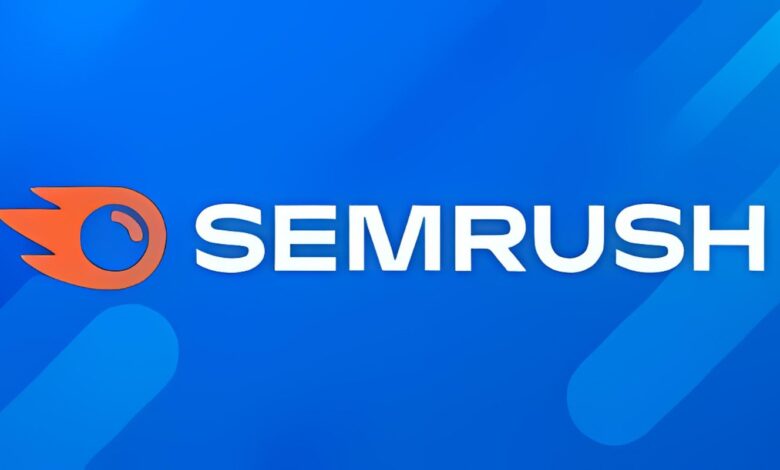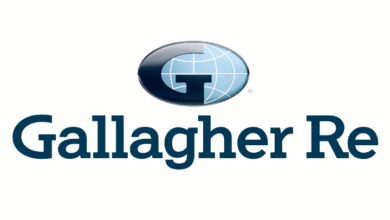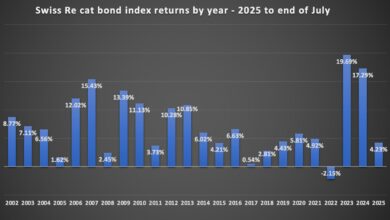Is It Still the Best SEO Tool?

Key Takeaways
- SEMrush now includes over 55 tools spanning SEO, PPC, content, and social media.
- Its Position Tracking, Keyword Magic Tool, and Site Audit remain industry-leading.
- 2025 price hikes may limit affordability for freelancers and small teams.
- Best suited for agencies and marketing teams managing complex or multi-channel campaigns.
- AI, Core Web Vitals, and improved UX drive platform innovation.
The digital marketing landscape never sleeps, and neither do the tools that power it. While everyone was busy optimizing their content for AI-driven search results in 2024, SEMrush quietly rolled out significant updates to cement its position as the go-to SEO platform. But with rising costs and fierce competition from Ahrefs and Moz, the question isn’t whether SEMrush is good—it’s whether it’s still worth the investment in 2025.
After spending considerable time analyzing the platform’s latest features, pricing changes, and competitive positioning, this comprehensive review cuts through the marketing noise to give you the straight facts about what SEMrush offers today.

What Makes SEMrush Stand Out in 2025
SEMrush has evolved far beyond its original keyword research roots to become what many consider the Swiss Army knife of digital marketing. The platform now houses over 55 tools covering everything from technical SEO audits to social media management, making it particularly attractive for agencies and businesses that need comprehensive digital marketing intelligence under one roof.
The platform’s strength lies in its database breadth and integration capabilities. With data covering over 140 countries and 25 billion keywords, SEMrush provides one of the most extensive keyword databases available. This massive dataset becomes particularly valuable when conducting competitive research or exploring international market opportunities.
What sets SEMrush apart from competitors is its focus on actionable insights rather than raw data dumps. The platform excels at connecting the dots between different aspects of digital marketing, showing how your SEO performance impacts your content strategy, which in turn affects your social media engagement and paid advertising effectiveness.
Key Differentiators:
- Comprehensive tool suite spanning SEO, PPC, content, and social media
- Global database coverage with 25+ billion keywords across 140+ countries
- Integrated reporting that connects performance across marketing channels
- Advanced competitive intelligence capabilities
- Extensive educational resources and certification programs

Start with SEMrush’s Position Tracking tool before diving into competitive analysis—understanding your current rankings provides essential context for all other insights.
Core Features That Drive Results
Keyword Research and Analysis
The Keyword Magic Tool remains SEMrush’s flagship feature, and recent updates have made it even more powerful. The tool now provides more granular keyword difficulty scores and enhanced SERP analysis that shows exactly what type of content is ranking for your target terms.
Key Features:
- Advanced keyword clustering for topical content strategies
- Historical data extending back several years for trend analysis
- Enhanced SERP features analysis (featured snippets, local packs, etc.)
- Question-based keyword suggestions for content optimization
- Seasonal trend identification for planning purposes
The keyword clustering feature automatically groups related terms, making it easier to build comprehensive content strategies rather than targeting keywords in isolation. This approach aligns well with Google’s increasing emphasis on topical authority and semantic search understanding.
Historical keyword data extends back several years, allowing you to identify seasonal trends and long-term search pattern changes. This proves invaluable for content planning and understanding market evolution over time.
Competitive Intelligence
SEMrush’s competitive analysis capabilities provide deep insights into competitor strategies across multiple channels. The Organic Research tool reveals which keywords competitors rank for, their estimated traffic volumes, and how their visibility has changed over time.
Competitive Analysis Features:
- Organic keyword gap identification across multiple competitors
- Backlink gap analysis revealing link-building opportunities
- Ad spend estimates and competitor PPC strategy insights
- Content gap analysis showing missing topics in your strategy
- Market share tracking for specific keyword segments
- Competitor landing page performance analysis
The Gap Analysis feature identifies keyword opportunities by comparing your site’s performance with up to four competitors simultaneously. This reveals content gaps and expansion opportunities that might otherwise be missed.
The Advertising Research section exposes competitor PPC strategies, including their ad copy, landing pages, and keyword bidding patterns. This intelligence proves particularly valuable for businesses operating in competitive markets where paid advertising costs continue to rise.
Content Marketing Tools
The Content Marketing Toolkit has received significant attention in recent updates. The SEO Writing Assistant provides real-time optimization suggestions as you write, checking for keyword density, readability, and semantic keyword inclusion.
Content Optimization Features:
- Real-time SEO writing assistance with readability scoring
- Content audit capabilities for existing page optimization
- Topic research based on trending industry discussions
- Content performance tracking across multiple channels
- Plagiarism checker for original content verification
- Social media content calendar integration
The Content Audit tool evaluates your existing content performance and identifies pieces that need updating, consolidation, or removal. This systematic approach to content maintenance helps maintain site quality and search rankings over time.
Topic Research generates content ideas based on trending topics in your niche, complete with questions people are asking and related headlines performing well across different platforms.
Technical SEO Capabilities
The Site Audit tool crawls up to 200,000 pages and identifies over 140 different technical issues that could impact search performance. The prioritization system helps focus attention on the most critical problems first.
Technical Audit Features:
- Comprehensive crawl analysis for up to 200,000 pages
- Core Web Vitals monitoring and optimization recommendations
- Page speed analysis with specific improvement suggestions
- Mobile usability testing and responsive design checks
- Schema markup validation and implementation guidance
- Internal linking structure analysis and optimization opportunities
Recent improvements include better Core Web Vitals monitoring and more detailed page speed analysis. The tool now provides specific recommendations for improving loading times and user experience metrics that directly impact rankings.
The Log File Analyzer helps understand how search engines actually crawl your site, revealing potential crawl budget issues and identifying pages that might be wasting valuable bot attention.

Use the Brand Monitoring tool to track when competitors mention your brand or key industry terms—this often reveals partnership opportunities or PR crisis situations before they escalate.
Pricing Structure and Value Analysis
SEMrush’s 2025 pricing structure includes three main tiers: Pro at $139.95 per month, Guru at $249.95 per month, and Business at $499.95 per month. The Business plan saw a 12% price increase for new users, though existing customers maintain their current pricing.
Plan Breakdown:
Pro Plan ($139.95/month):
- 5 projects and 500 keywords to track
- 10,000 results per report
- Basic SEO and PPC tools access
- Limited historical data (1 year)
- Suitable for individual consultants and small businesses
Guru Plan ($249.95/month):
- 15 projects and 1,500 keywords to track
- 30,000 results per report
- Content Marketing Toolkit access
- Full historical data availability
- Branded reports and extended limits
- Most popular choice for growing agencies
Business Plan ($499.95/month):
- 40 projects and 5,000 keywords to track
- 50,000 results per report
- API access and advanced integrations
- Extended limits across all features
- White-label solutions for enterprise teams
The Pro plan provides access to core SEO and PPC tools with limitations on the number of reports and tracked keywords. This tier works well for individual consultants or small businesses with focused SEO needs.
Annual billing provides substantial savings across all plans, making the commitment worthwhile for businesses planning long-term SEO investments. The company also offers a seven-day free trial, though this limited period barely scratches the surface of the platform’s capabilities.

Take advantage of the 7-day free trial by preparing a list of competitors and target keywords beforehand—this maximizes your evaluation time and helps determine which plan level you actually need.
Competitive Landscape Analysis
SEMrush vs. Ahrefs
Database and Coverage:
- SEMrush dominates in local SEO capabilities compared to Ahrefs
- Ahrefs maintains an edge in backlink analysis depth and user interface simplicity
- SEMrush provides more comprehensive data combining both SEO and PPC insights
- Ahrefs focuses primarily on organic search optimization with limited paid advertising features
Feature Comparison:
- SEMrush includes more international markets and local search data
- Ahrefs typically provides more accurate backlink profiles and link-building opportunities
- SEMrush offers integrated content marketing and social media tools
- Ahrefs excels in technical SEO recommendations and site audit capabilities
The keyword database comparison shows both platforms offer extensive coverage, though SEMrush includes more international markets and local search data. SEMrush provides more well-rounded capabilities for integrated marketing strategies, while Ahrefs maintains its reputation for superior backlink analysis and cleaner user interface design.
SEMrush vs. Moz
Usability and Learning Curve:
- Moz offers a simpler, more intuitive interface with automated weekly crawls
- SEMrush provides broader functionality but requires a steeper learning curve
- Moz focuses on prioritized technical recommendations for quick wins
- SEMrush delivers comprehensive data requiring more analysis time
Metrics and Authority:
- Moz’s Domain Authority metric remains widely recognized in the SEO community
- SEMrush’s Authority Score provides similar insights with different calculation methods
- Both metrics serve as useful benchmarks for competitive analysis
- Moz emphasizes simplicity while SEMrush prioritizes comprehensive data coverage
The pricing comparison shows Moz as the more budget-friendly option for basic SEO needs, while SEMrush justifies higher costs with expanded feature sets and data comprehensiveness across multiple marketing channels.
Our Problem: Too Many Leads, Not Enough Agents
 Grow Your Agency Faster with Agency Height Insurance Directory
Grow Your Agency Faster with Agency Height Insurance Directory
Your email has been registered. Redirecting…
Join our network of successful agents and start getting quality leads
Real-World Application Scenarios
For Digital Marketing Agencies
SEMrush excels in agency environments where teams need to manage multiple client accounts across various industries. The white-label reporting features allow agencies to present professional client reports without extensive customization work.
The project management capabilities help organize campaigns and track progress across different team members. Client access controls ensure stakeholders see relevant information without overwhelming them with technical details.
The competitive analysis features prove particularly valuable for agency new business pitches, allowing quick demonstration of market opportunities and competitor weaknesses during prospect meetings.
For Enterprise In-House Teams
Large organizations benefit from SEMrush’s integration capabilities with existing marketing technology stacks. The API access enables custom reporting and data synchronization with internal systems.
The historical data retention helps enterprises understand long-term market trends and measure the impact of major website changes or algorithm updates over extended periods.
Multi-user collaboration features support complex approval workflows and cross-departmental coordination common in enterprise marketing environments.
For Small Business Owners
Solo entrepreneurs and small business owners often find SEMrush overwhelming initially, but the guided workflows and templates help streamline common tasks like keyword research and content optimization.
The local SEO features prove particularly valuable for service-based businesses targeting specific geographic markets. The reputation management tools help monitor and respond to online reviews across multiple platforms.
The content marketing suggestions help small businesses maintain consistent publishing schedules without requiring dedicated content teams or extensive market research capabilities.
Strengths and Advantages
Comprehensive Integration Benefits:
- Eliminates the need for multiple specialized tools in many situations
- Integrated dashboard provides a single source of truth for digital marketing performance
- Cross-channel insights reveal connections between SEO, content, and paid advertising efforts
- Unified reporting streamlines client presentations and stakeholder communications
Data Quality and Reliability:
- Data accuracy and freshness surpass many competitors with frequent database updates
- Extensive historical data helps track long-term trends and algorithm impact
- Global coverage supports international expansion and multi-market strategies
- Real-time monitoring capabilities enable rapid response to ranking changes
Educational and Support Value:
- Educational resources and certification programs add value beyond the tool itself
- SEMrush Academy provides structured learning paths for team skill development
- Customer support quality exceeds industry standards with responsive technical assistance
- Knowledge base contains detailed tutorials and troubleshooting guides for complex scenarios
The comprehensive approach reduces tool sprawl and subscription costs while providing deeper insights through integrated data analysis. This proves particularly valuable for agencies managing multiple clients and businesses coordinating complex marketing campaigns across various channels.

Set up automated reports for key stakeholders using SEMrush’s white-label options—this saves hours of manual reporting while keeping everyone informed of performance trends without overwhelming them with technical details.
Areas for Improvement
The learning curve remains steep for new users, particularly those without extensive SEO background. The interface complexity can overwhelm beginners despite recent usability improvements.
The pricing increases concern budget-conscious users, especially small businesses and individual consultants facing economic pressures. The value proposition becomes harder to justify as costs approach enterprise software levels.
Some specialized features lack the depth found in dedicated tools. While SEMrush covers many areas adequately, businesses with specific needs might require additional specialized solutions.
The data export limitations frustrate users who need extensive data manipulation or integration with custom analysis tools. The API access helps but requires technical expertise many users lack.
Alternative Solutions to Consider
Ahrefs remains the top choice for businesses prioritizing backlink analysis and technical SEO depth. The user interface simplicity and focused feature set appeal to users who prefer specialized tools over comprehensive platforms.
Moz provides a middle-ground option with solid SEO fundamentals at lower price points. The established metrics and straightforward reporting suit businesses with basic optimization needs.
Newer entrants like Surfer SEO and Clearscope focus specifically on content optimization, often providing superior guidance for on-page SEO compared to SEMrush’s broader approach.
Free alternatives including Google Search Console, Google Analytics, and Google Keyword Planner cover basic needs for budget-conscious users, though they lack the integration and advanced features of paid platforms.
Our Problem: Too Many Leads, Not Enough Agents
 Grow Your Agency Faster with Agency Height Insurance Directory
Grow Your Agency Faster with Agency Height Insurance Directory
Your email has been registered. Redirecting…
Join our network of successful agents and start getting quality leads
Future Outlook and Development
SEMrush continues investing heavily in artificial intelligence and machine learning capabilities. The predictive analytics features show promise for forecasting market trends and optimization opportunities.
The integration with emerging platforms and social media channels keeps the tool relevant as digital marketing evolves. Recent additions include TikTok and Instagram analytics alongside traditional web-based metrics.
The company’s focus on international expansion provides opportunities for businesses exploring global markets. The addition of new geographic databases and local search features supports this strategic direction.
Final Verdict: Is SEMrush Worth It in 2025?
SEMrush remains a top-tier SEO platform, offering robust tools for keyword research, competitor analysis, content strategy, technical audits, and paid insights — ideal for agencies and mid-to-large businesses managing complex campaigns.
That said, recent price hikes make it harder to justify for small teams or individuals with narrower needs. For them, specialized or free tools might offer better ROI.
For those who can fully leverage its features and invest time in learning the platform, SEMrush delivers strong value through workflow efficiency, data depth, and integrated reporting. Its support and educational content further enhance long-term usability.
Verdict: If you need an all-in-one solution and have the budget and bandwidth, SEMrush continues to be one of the most capable SEO tools in 2025. But casual users or lean teams should weigh the cost against actual usage.
Frequently Asked Questions
-
What is SEMrush used for in 2025?
It’s a full-suite marketing tool for SEO, PPC, content, social media, and competitive research.
-
Is SEMrush still the best SEO tool in 2025?
Yes—for agencies, marketers, and SEO pros who need deep data and integrated insights. But it may be costly for beginners.
-
How much does SEMrush cost in 2025?
Plans start at $139.95/month. Guru and Business plans go up to $499.95/month.
-
What are the top SEMrush alternatives?
Ahrefs (for backlinks), Moz (for simplicity), Surfer SEO (for content), and Clearscope.
-
Who should use SEMrush?
Digital agencies, in-house marketers, SEO professionals, and enterprise teams managing SEO and multi-channel marketing.



